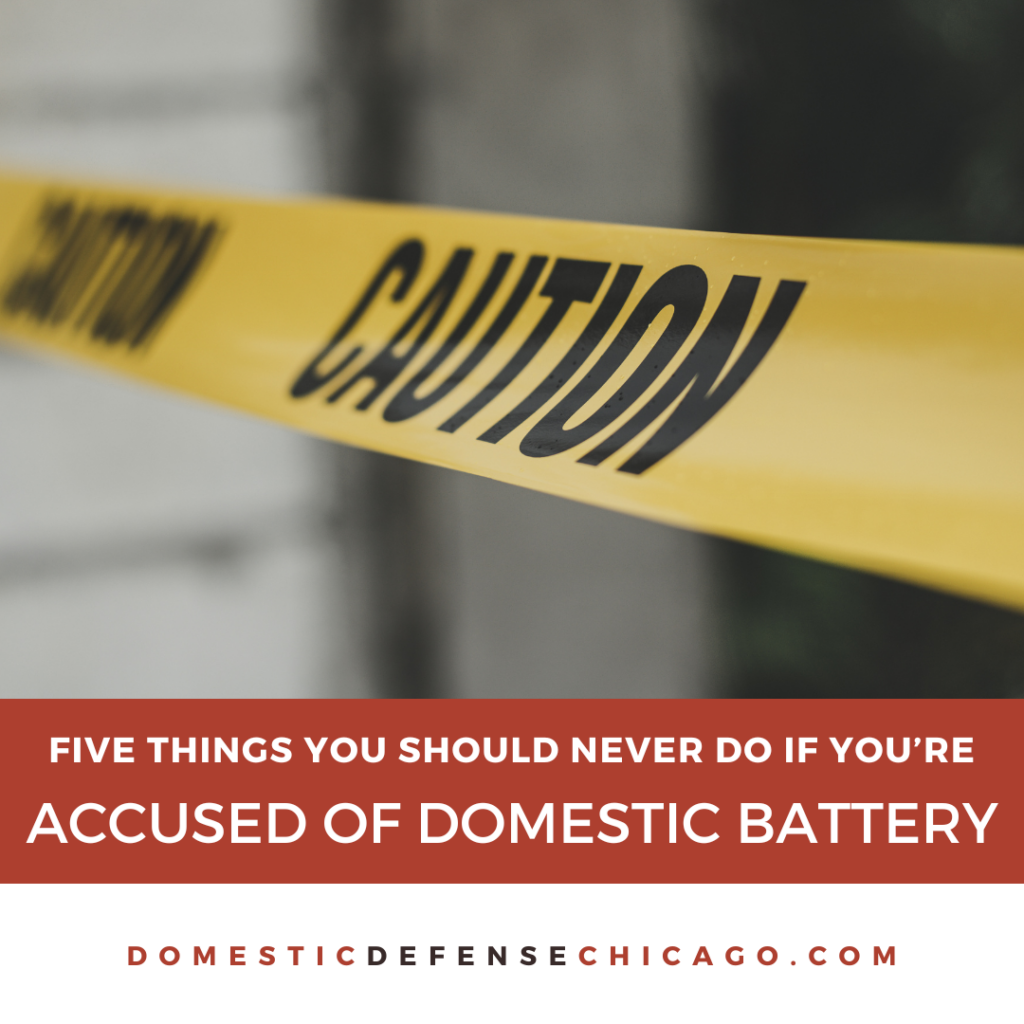Being accused of domestic battery is a serious matter, and how you react in the immediate aftermath can shape the course of the entire case. This guide aims to highlight some common mistakes people make and offers insights on how to navigate such a challenging situation.
5 Things You Should Never Do if Someone Accuses You of Domestic Battery in Illinois
This guide explains the following:
- Resisting arrest or arguing with police
- Contacting the accuser directly
- Discussing your case on social media
- Ignoring or violating a protective order
- Attempting to handle the situation without legal representation
Here’s a closer look at each.
Resisting Arrest or Arguing with Police
If police arrive to arrest you on a domestic battery charge, it’s essential to remain calm and compliant. Resisting arrest or arguing can lead to additional charges and complicate your defense. Remember, everything can be used against you in court. It’s best to remain silent and wait to speak with your attorney.
Contacting the Accuser Directly
It might be tempting to reach out to the accuser to clear the air or defend yourself. However, this can backfire, especially if there’s a protective order in place. Any communication can be used as evidence, and it’s best to let your lawyer handle all interactions.
Discussing Your Case on Social Media
In today’s digital age, it’s natural to want to vent or defend yourself online. However, anything you post can be used as evidence against you. Refrain from discussing any aspect of the case on social media platforms.
Ignoring or Violating a Protective Order
If a protective order is issued against you, follow it to the letter. Violating such an order can lead to additional legal complications and paint you in a negative light in court.
Attempting to Handle the Situation Without Legal Representation
This isn’t the time to go it alone. A lawyer with experience and knowledge in domestic battery cases can provide invaluable advice, build a strong defense, and guide you through the complexities of the legal system.
FAQ About Domestic Battery in Illinois
Can an Accuser Drop Charges?
While an accuser can express the desire to drop charges, the decision ultimately rests with the prosecutor. They can proceed with the case even if the accuser changes their mind.
How Long Does a Domestic Battery Charge Stay on Your Record?
In Illinois, a domestic battery conviction remains on your record permanently unless you’re granted an expungement. It’s essential to seek legal guidance to understand the process and your options.
What’s the Difference Between Domestic Battery and Aggravated Domestic Battery?
While both are serious offenses, aggravated domestic battery involves severe bodily harm or involves strangulation. It carries heftier penalties than a regular domestic battery charge.
Is Self-Defense a Valid Defense?
Yes, if you believe you were acting in self-defense, it can be a valid defense in court. However, you’ll need evidence and a strong legal strategy to support your claim.
What Are the Potential Penalties for a Conviction?
Domestic battery penalties in Illinois can range from misdemeanor to felony charges. Depending on the severity, you could face jail time, fines, probation, counseling, and more.
Facing an accusation of domestic battery can be overwhelming. However, by avoiding these common missteps and seeking legal guidance, you can navigate the situation with a clearer perspective and better chances for a favorable outcome.
Do You Need to Talk to an Attorney About Domestic Battery Defense?
If you need to talk to a domestic battery defense attorney in Illinois, we’re here to help. Call us at 847-920-4540 now – we’ll be happy to give you a free consultation and talk to you about your options.







Leave A Comment
You must be logged in to post a comment.